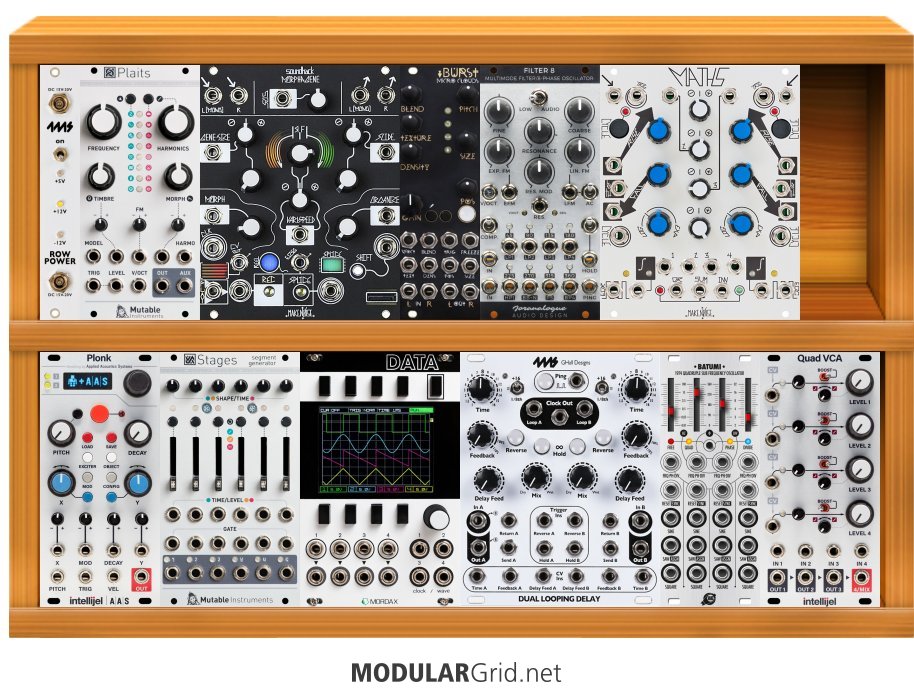OK...no. Let's dispel a few rumors here.
First of all, the killer bass sounds you hear in a lot of techno are NOT ALWAYS the result of analog synths. One of the more popular for this purpose in the Detroit end of things has actually, for some time, been the Yamaha DX100. Derrick May, in fact, is a real master of 4-op programming; Carl Craig's also made extensive use of the DX7. The idea that you MUSTMUSTMUST have analog for bass is, in fact, bullshit. Even I have a certain death-dealing bass patch on my long-beloved CZ-101 that has, through the proper amplification setups, caused actual physical damage due to it's subbass properties. So is the Plaits usable for bass? Sure...because in analog synthesis, the key to huge bass isn't the oscillator, it's the combination of the VCF and the right modulating EG for that, plus maybe a little nonlinearity in the VCA to do a touch of waveshaping. A sharp, percussive attack modulating a good 4-pole lowpass VCF fed with most anything will create hefty bass, depending on how you've set up the cutoff and resonance on it and the pitch class of the incoming audio. As for the 303...yeah, sure, it says "Bass" on the case, but most people using it, starting with Larry Heard, MISused the TB-303 to get all sorts of higher-range squelchy sounds, particularly in tandem with the "glide" control in the step sequencer.
Second of all, modulation. The Batumi and the Stages both have sliders. And that's where the resemblance stops. The Batumi is a great source of LFO curves. But the Stages is more akin to a sequencer in that you set your different stage levels and the module sweeps through these to create a user-defined modulation curve, or discrete modulation steps, plus a few other tricks. It's not an LFO or EG per se...but at the same time, it can be both and more besides.
Three, the Maths and the Quadra. The Maths is an interconnected and self-contained pair of what, for the most part, are a pair of Serge-type slope generators. It's more akin to a very simplified analog computer in how it creates both self-generated and externally-derived voltage curves. The Quadra, however, in its base form is just four AD envelope generators. To get it to work on an order of complexity more like the Maths, it's necessary to add the Quadra Expander, which contains the controls and patchpoints for more complex functions. But this also kills another 12 hp of space.
Lastly, why do this in modular? Consider for a minute that if you're simply trying to augment a Shuttle System, wouldn't it be easier, smaller, and cheaper to go with a small patchable or two? You could snag a MakeNoise 0-Coast for much less and make ample use of that (especially its LPG!) in tandem with what you have now. This would also be helpful if you were playing live, in that a handful of patchables, your sequencers, a drum machine to sync with those, and a mixer could easily fit in one decent-sized compartmented flight case. Modular may be sexy...but it's also spendy and, unless you have a very specific need for it, kind of impractical in live settings.

